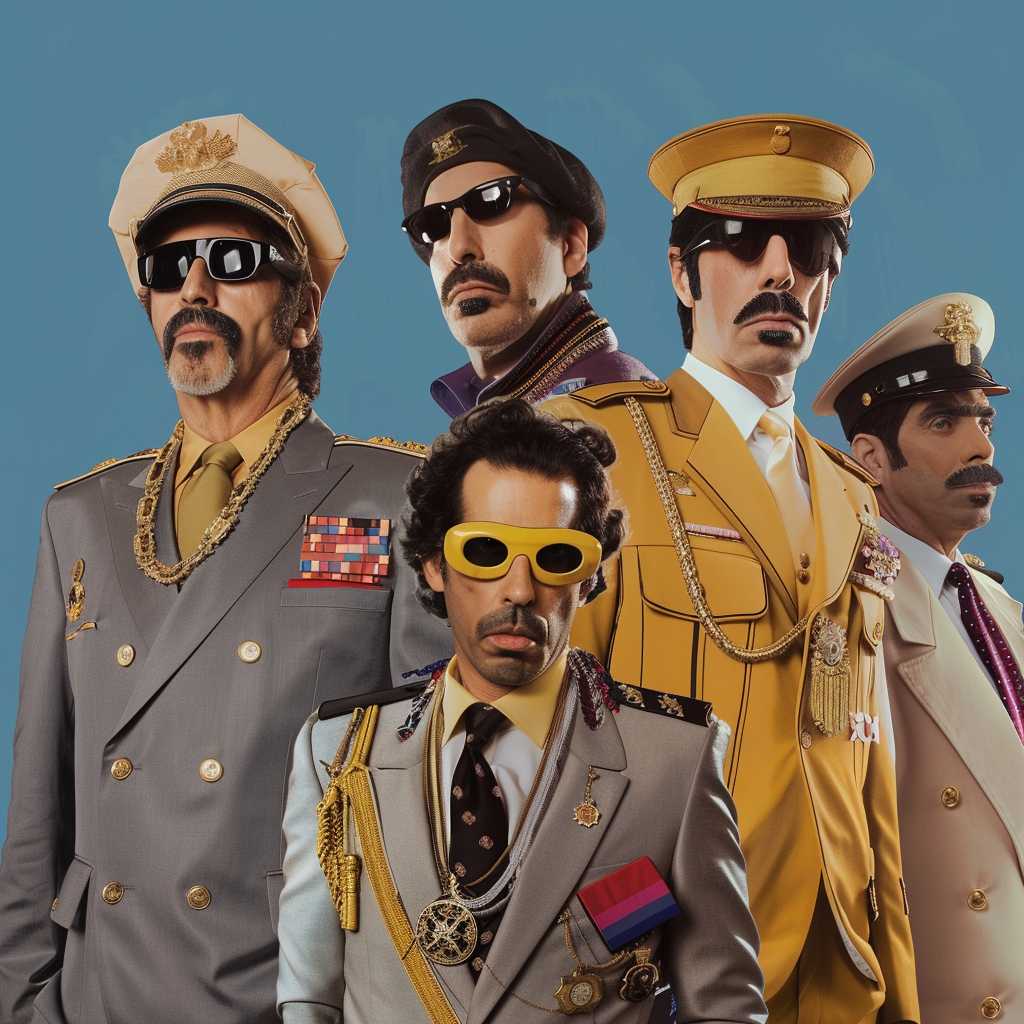The Multi-Faceted Career of Sacha Baron Cohen: Comedian, Actor, and Social Commentator
Sacha Baron Cohen is a British actor and comedian best known for his unique style of satire, which often involves creating fictional characters and inhabiting them to expose societal prejudices and hostilities through unscripted scenarios. His works are notable for their controversial subject matter, bold interactions with unwitting participants, and commentary on social issues.
Beginnings and Breakthrough: The Formation of Baron Cohen’s Comedic Identity
Baron Cohen’s journey into the spotlight began with a fondness for performance and character creation. He studied at the prestigious University of Cambridge where he became involved in the Cambridge University Amateur Dramatic Club. His early comedic influences included Peter Sellers and Monty Python, which can be seen in the absurdity and complexity of his own characters.
He first gained notice in the mid-1990s as a television presenter before making a significant impact with his character Ali G, a satirical depiction of a British suburban male who blends hip-hop culture with a humorous lack of self-awareness. Initially appearing on ‘The 11 O’Clock Show’ on Channel 4, Ali G became wildly popular, leading to his own show ‘Da Ali G Show’ which aired in the UK and later in the US.
Cultural Impact: From Comedy to Cinematic Fame
Baron Cohen expanded beyond television into the film industry, creating features based on his characters, most notably ‘Ali G Indahouse’, ‘Borat: Cultural Learnings of America for Make Benefit Glorious Nation of Kazakhstan’, ‘Brüno’, and ‘The Dictator’. Borat, perhaps his most iconic character, garnered particularly massive international attention for its satirical portrayal of an ostensibly naïve Kazakh journalist’s travels through the United States, revealing prejudices and cultural clashes along the way.
With this film, Baron Cohen demonstrated an undeniable ability to blend comedy with sharp social commentary. The character was an exercise in holding a mirror up to society, accomplished through real interactions with Americans who were often unaware that Borat was a fictive construct designed to skewer xenophobia, sexism, racism, and many other social ills under the guise of humor.
Risk-Taking for Art: Confrontation and Controversy
Much of Baron Cohen’s approach involves risky confrontations. His modus operandi generally requires filming with real individuals who are not privy to the fact they’re part of a satirical comedy bit. This has led to lawsuits and public outcry by some who feel duped or misrepresented—including public figures, politicians, and everyday citizens caught in the crosshairs of his cinematic pranks.
Despite these controversies, his work prompts discussions on important social themes like intolerance and cultural misunderstandings, often succeeded by a mix of reactions ranging from offense to appreciation for the thought-provoking content he produces.
Evolution as a Performer: Diverse Roles and Recognition
Baron Cohen has also embraced more traditional acting roles in his expansive career. Straying from his original character work, he has played memorable parts in films like ‘Sweeney Todd: The Demon Barber of Fleet Street’, ‘Hugo’, and ‘Les Misérables’, showcasing not only his dramatic chops but also his singing abilities.
His performance repertoire innovates beyond comedy itself—exemplified in Netflix’s drama series ‘The Spy’, in which he portrayed real-life Mossad agent Eli Cohen, earning plaudits for a serious role much-detached from his earlier career hijinks.
Mainstream Success and Challenges
Through the trajectory of his career, Baron Cohen has consistently moved between critical acclaim and sharp criticism. However, it’s undeniable that his work has triggered expansive debates about free speech, comedic boundaries, and the social responsibility of entertainers.
Notes
*Image description: A collage depicting Sacha Baron Cohen in various disguises from his most iconic roles—Ali G with his signature yellow glasses and headgear; Borat in the grey suit carrying Kazakhstan’s national flag; Brüno flaunting an avant-garde fashion style; Admiral General Aladeen from ‘The Dictator’ in full military outfit; and himself at an awards show looking dapper in a classic tuxedo.*
